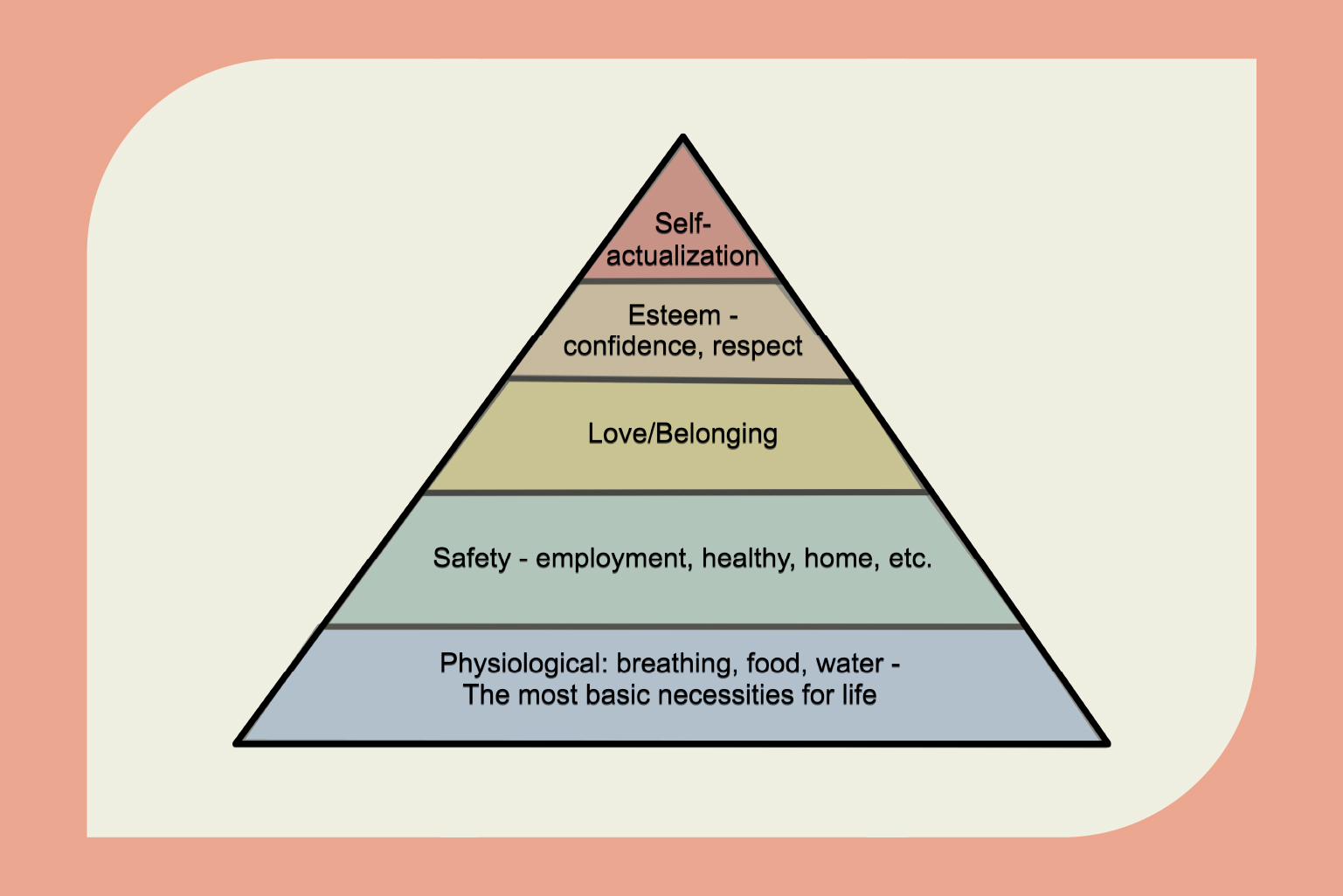A fresh start begins with a stable home
Homelessness isn’t just a housing issue – it affects every part of a person’s life. Without a stable place to live, maintaining your physical health, mental well-being, and steady employment becomes increasingly difficult because your basic needs aren’t being met.
But how can we support the most vulnerable in our community and help them find a safe, permanent place to live?
In this blog, we’ll consider Maslow’s Hierarchy of Needs and look at how HMOs could be the missing puzzle piece for communities affected by homelessness. Plus, we’ll discuss ways that investors and local authorities can get involved to help.
The journey from homelessness to stability
Finding long-term housing isn’t always a straightforward process. Many people experiencing homelessness start in emergency shelters, move to temporary housing, and then try to secure a permanent home. But transitioning into the private rental market can be especially difficult due to obstacles like:
- No rental history
- Financial instability
- Lack of a strong support system
- Landlord perceptions
Without support, it’s easy to fall back into homelessness. But suitable housing options and community support can help.
Applying Maslow’s Hierarchy of Needs to housing and homelessness
Maslow’s Hierarchy of Needs explains that humans must first have their basic physiological needs – food, water, warmth, rest – and safety needs met before they can focus on building relationships, improving their self-esteem, and working on personal growth.

The third level of the hierarchy – love and belonging – is also essential for human development. But without a safe place to call home, how can people experiencing homelessness feel like they belong and start to reintegrate into society?
We believe Houses in Multiple Occupation (HMOs) are the answer. By offering safe, consistent housing options, we can help break the cycle of homelessness and provide people with a stable living environment that provides:
- A foundation to rebuild their life
- Social connections that prevent isolation
- A better chance at employment and independence
How HMOs can help bridge the gap
HMOs are shared homes where individuals rent private rooms but share common areas like kitchens, bathrooms and living spaces. They’re a particularly useful form of transitional housing for those moving out of homelessness because they offer a more accessible and supportive living arrangement compared to traditional private rentals.
A practical solution for communities affected by homelessness:
HMOs are more affordable
Renting a single room in an HMO is generally much cheaper than renting an entire apartment, making it a viable option for those with limited income or financial instability. Bills are often also included in the rent, reducing the burden of managing multiple expenses.
HMOs provide social connection
Social isolation is a major challenge for people transitioning out of homelessness. In an HMO, shared spaces naturally encourage interaction, helping tenants build relationships and regain a sense of belonging. This informal support network can be crucial in preventing a return to homelessness.
HMOs offer structure and stability
Having a shared living environment, housemates and a property manager can provide people with a sense of accountability and stability, which can make it easier for tenants to create a routine, maintain employment, access support services, and work towards long-term housing goals.
We believe that HMOs are the future of affordable housing because they can be an important stepping stone for individuals who are ready to regain independence but still need some level of support.
Turning empty homes into viable investments
While homelessness is on the rise, thousands of homes across the country sit vacant. These properties, whether abandoned, unoccupied, or caught in legal or financial limbo, represent a missed opportunity. Turning vacant homes into affordable housing can be a win-win for everyone involved – helping people in need while revitalising communities and adding value to investment properties for investors.
But, how can we put these empty properties to good use?
- Refurbishment programs – Many empty homes fall into disrepair, making them unlivable. Government-backed refurbishment schemes or community-led projects can restore these properties and bring them back into the housing supply.
- Public-private partnerships – Working with local authorities and housing organisations can create sustainable solutions that balance affordability with long-term investment. These partnerships can turn empty properties into stable, managed housing for those transitioning out of homelessness.
- Investor-backed redevelopment – Private investors play a key role in transforming neglected homes into quality, affordable housing. By working with ethical landlords and housing providers, investors can create solutions that benefit both communities and individuals in need.
With the right strategies, vacant homes can become stepping stones to stability rather than wasted space, as well as pump more money into the economy.
Collaboration is key
Solving homelessness isn’t something one group can tackle alone. It requires landlords, investors, management companies, local governments, and support organisations to work together and create lasting solutions. By combining resources and expertise, we can turn underused properties into safe, affordable housing for those who need it most.
At Purseglove Property, we specialise in HMO management, investment consultation and refurbishment management. Get in touch to find out more about our end-to-end property services, tailored to investors who want to reap the rewards of property investment but who lack the time, expertise, or inclination to oversee the process themselves.
What needs to happen next?
To make a real difference, housing strategies need to evolve. Local authorities, social workers, and policymakers should integrate HMOs and refurbished homes into their housing plans, recognising them as viable, long-term solutions to homelessness. In fact, we’re currently in talks with local charities and the EMCCA to do just that, so keep your eyes peeled for news about how Purseglove Property is making a real difference in the East Midlands.
And if you’re a property investor interested in ethical, financially sound opportunities, get in touch to find out how we can help you to take the next step in your property investment journey with investments that offer steady returns and change lives.
Partner with Purseglove to create sustainable transitional housing
A stable home is more than just a roof over someone’s head – it’s the foundation for rebuilding a life. Without secure housing, it’s nearly impossible to focus on employment, mental well-being, or reconnecting with the community. That’s why transitional housing solutions are so important in breaking the cycle of homelessness.
At Purseglove Property, we believe in creating community-focused housing like HMOs, that not only provide shelter but also support long-term stability. But the most effective solutions come from collaboration.
With the help of investors, policymakers, and support services, we can build a future where everyone has the opportunity to move from homelessness to independence. Get in touch with us today to get involved!

